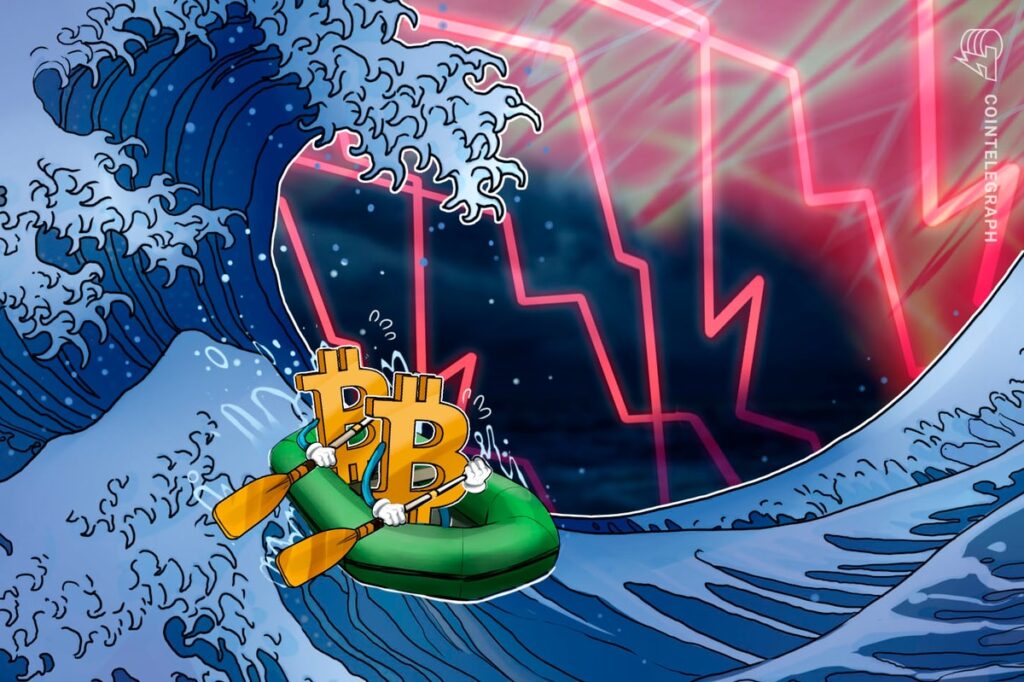Bitcoin price drops and crypto market chaos deepens – is Germany to blame?

Between June 20 and June 21, the total cryptocurrency market capitalization decreased by 3.9%, reaching a five-week low of $2.34 trillion. This decline affected every top 10 coins, with Bitcoin (BTC) falling 4.2%, Ether (ETH) experiencing a 4% loss, and BNB (BNB) facing a 4.2% correction. Although some of the day's losses have recovered, the market remains in a bearish mood.
Germany Sells Over Pressure With Microstrategy BTC Buys
Some analysts have pointed out that the massive sale of Bitcoin by the German government has led to the collapse of the crypto market. However, this explanation ignores the fact that traditional finance investors react to unfavorable macroeconomic data. Traders are concerned that the stock market may be hitting new highs and that the US fiscal situation is weakening.
According to OnChain crypto analytics firm Arkham, a wallet linked to the German government transferred 6,500 BTC to the exchange on June 19, worth $425 million at the time. Arkham's wallet claims to contain approximately 50,000 BTC, believed to have been seized from Movie2k, a pirated movie website that operates in 2013. This entity sent BTC to Kraken, Bitstamp and Coinbase, leaving little doubt about its origin and effectiveness. sale.
But this theory is wrong because US-based business intelligence firm MicroStrategy revealed that it bought an additional 11,931 BTC for $786 million on June 20. Thus, microstrategy buying offset the selling pressure, including a two-day net outflow of $292 million from US spot Bitcoin exchange-traded funds.
No other regulatory changes or events in the last two days could have had a negative impact on the sentiment of cryptocurrency investors, one should focus on the traditional financial industry, especially macroeconomic data. Although there is a short-term correlation between the S&P 500 index and the crypto sector, traders often exit the risk-adjusted position during uncertain times.
US futures and options are outdated and worsening global macroeconomic conditions
According to Bloomberg, the US stock market is experiencing the “triple witch,” a quarterly event when contracts linked to stocks, index options and futures are scheduled to mature. A total of $5.5 trillion is set to expire on June 21, and with the S&P 500 nearing all-time highs, investors fear that weak macroeconomic data will signal the risk of a deeper recession.
Home sales in the US fell for a third straight month in May, while France and Germany's manufacturing and services purchasing managers' index (PMI) readings came in below expectations. Similarly, PMI in the UK showed that private sector companies are growing slower than expected. Finally, Japan's inflation rose to 2.8 percent in May, up from 2.5 percent in April.
Gennady Goldberg, head of U.S. price strategy at TD Securities, said the U.S. debt ceiling, which has been blocked by Congress as early as 2025, is expected to create controversy and another sovereign credit rating downgrade, Reuters reported. “The 5-year credit default swap (CDS) on US sovereign debt is showing some concern,” Goldberg said.
Related: Why Is Bitcoin Price Down Today?
The worsening sentiment was reinforced after retail data provider Sintun reported the first drop in sales during China's annual mid-year e-commerce festival. The event celebrates the founding of Chinese giant JD.com, which ranks second in annual sales in the region, according to CNBC. Total sales in 2024 will reach $102.3 billion, a 7% decrease compared to 2023.
In this case, the US dollar index reached a 50-day high of 105.85, indicating that investors are moving away from the euro, British pound, Swiss franc and similar currencies. While the S&P 500 index remained unchanged on June 21, traders see Bitcoin's 52% year-to-date gains in 2024 as a reason to capitalize on the gains and reduce exposure to macroeconomic uncertainty.
This article does not contain investment advice or recommendations. Every investment and business activity involves risk, and readers should do their own research when making a decision.













